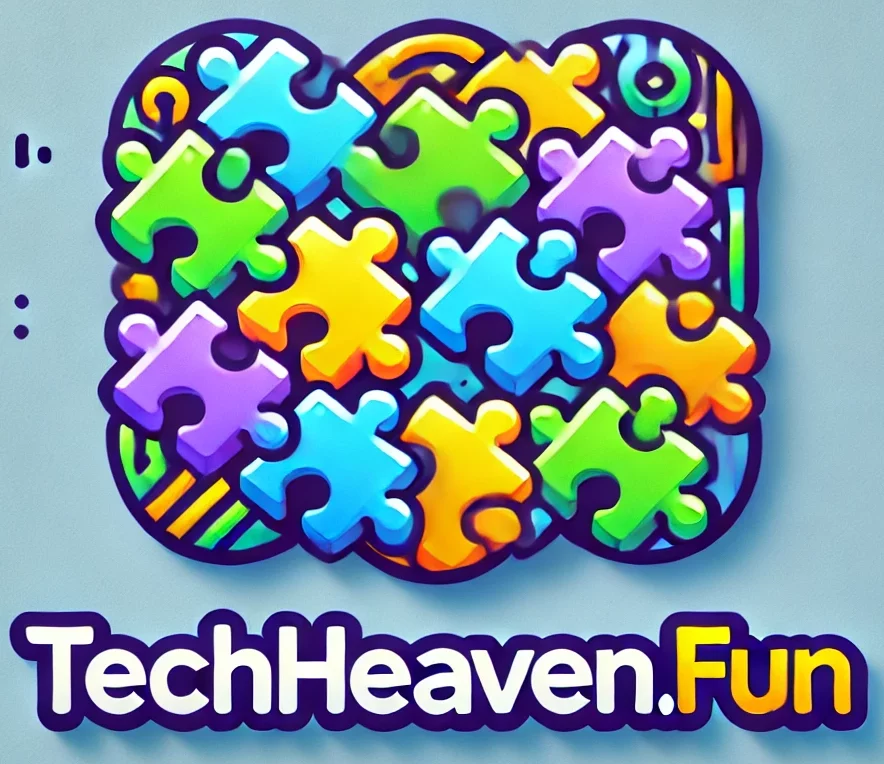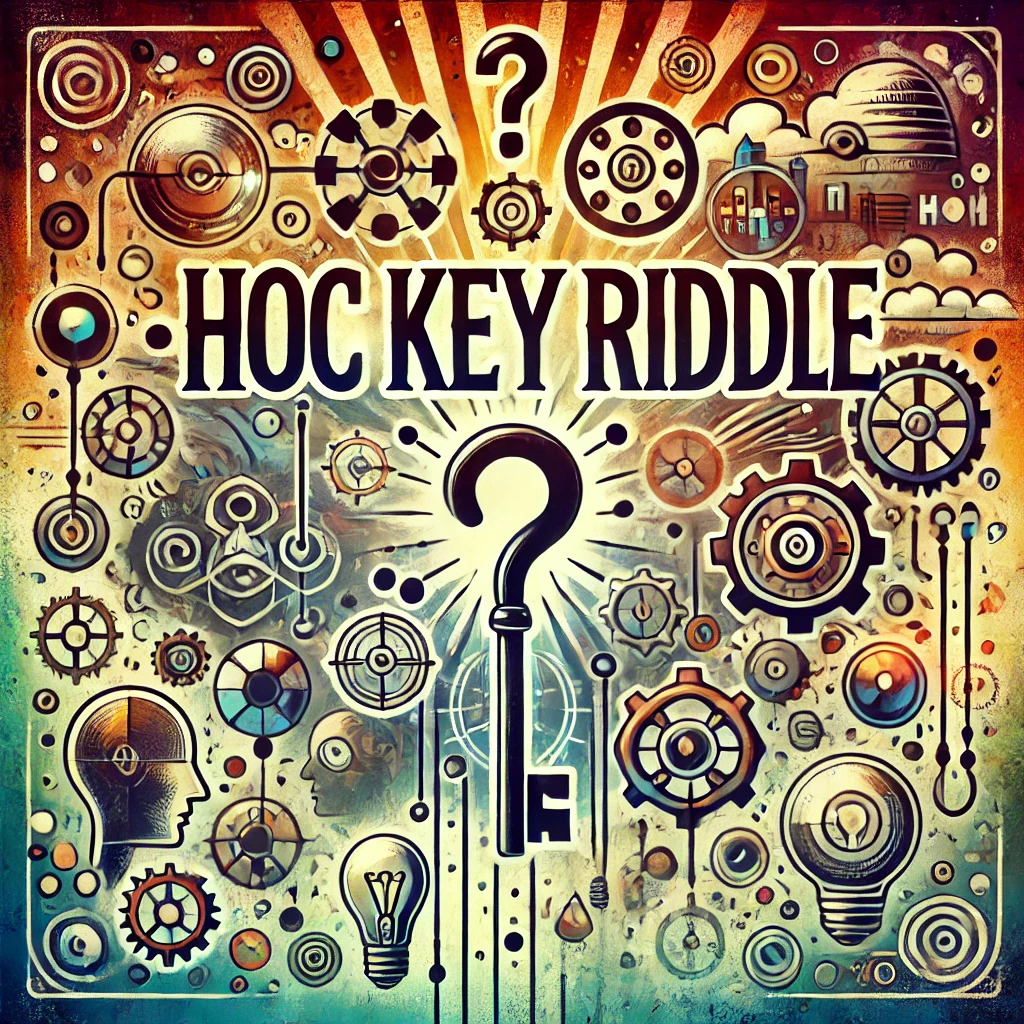Hoc key riddles are a fantastic way to enhance your mental exercises and boost your problem-solving skills. These word puzzles not only encourage creative thinking but also sharpen your cognitive abilities. Engaging in brain teasers like hoc key riddles helps to improve your focus, attention to detail, and critical thinking.
Many riddles involve wordplay and puns, making them an enjoyable challenge for those who enjoy mind games. Whether you’re solving a tricky puzzle or enjoying a fun riddle, the benefits extend beyond entertainment—they contribute to a stronger memory, improved logical reasoning, and better overall mental clarity
riddles are an excellent way to challenge your mind and improve your problem-solving abilities. These types of puzzles engage your brain in creative thinking and logic. Whether you’re solving riddles alone or with friends, they can serve as a fun and educational activity.
Logical riddles and word puzzles, in particular, test your ability to connect clues and think critically. Many people use brain teasers like hoc key riddles to sharpen their focus and attention to detail. If you enjoy solving challenging puzzles, you’ll find that hoc key riddles offer an entertaining way to engage your mind and develop cognitive skills
What is the Hoc Key Riddle?
Before we dive into some specific examples, let’s first define what the hoc key riddle is. A “hoc key riddle” is a clever puzzle that often plays with words, logic, or concepts in a way that makes you think outside the box. It typically involves finding the solution to a tricky question where the clues may be hidden or masked by wordplay, making the answer hard to figure out at first.
The name “hoc key” itself might sound a bit mysterious or cryptic, but once you get the hang of it, you’ll see how enjoyable these riddles can be. They often test your ability to connect different ideas or think of things in unconventional ways.
Why Are Hoc Key Riddles So Fun?
Hoc key riddles are an excellent mental exercise because they force you to stretch your thinking. These types of puzzles require you to look at situations from different angles, consider possible wordplay, and sometimes even make connections between seemingly unrelated ideas. The challenge they present is part of what makes them so enjoyable.
Whether you’re looking to kill some time, improve your cognitive abilities, or impress your friends, solving a hoc key riddle can be an entertaining and rewarding experience. Plus, they are often designed to be simple enough for people of all ages to enjoy, making them accessible to everyone.
Let’s explore five examples of hoc key riddles and their answers to give you a taste of the fun!
1. The Word Puzzle Riddle
Riddle:
I am always hungry, I must always be fed. The finger I touch, will soon turn red. What am I?
Answer:
Fire.
This is a classic hoc key riddle that plays with the idea of “hunger” and “redness.” The riddle uses personification to describe fire as something that needs to be “fed,” and the “red” refers to the color of fire. It’s a simple yet effective example of how the hoc key riddle works by playing with descriptive words.
2. The Timeless Object Riddle
Riddle:
I have keys but open no locks. I have space but no room. You can enter, but you can’t go inside. What am I?
Answer:
A keyboard.
This one is a great example of how a hoc key riddle uses wordplay with everyday items. The “keys” refer to the buttons on a keyboard, which are technically called keys, but they don’t function like traditional keys. The “space” is referring to the spacebar, and the idea that you can “enter” refers to the “Enter” key. It challenges your thinking and makes you see a common object in a new way.
3. The Time Challenge Riddle
Riddle:
The more you take, the more you leave behind. What am I?
Answer:
Footsteps.
This riddle uses a simple yet effective metaphor. The more you walk (take steps), the more footsteps are left behind, hinting at the connection between movement and the trail you leave. This is another example of a hoc key riddle that plays with words and encourages you to think about different meanings.
4. The Unexpected Riddle
Riddle:
I speak without a mouth and hear without ears. I have no body, but I come alive with the wind. What am I?
Answer:
An echo.
Here, the riddle uses personification and paradoxical language. It talks about an entity that seems to have human-like traits—like speaking and hearing—but in reality, it’s something entirely different. The echo “speaks” by bouncing sound waves and “hears” by capturing those waves, but it doesn’t have a physical form. This riddle is a good example of how hoc key riddles make you think creatively.
5. The Classic Paradox Riddle
Riddle:
I am light as a feather, yet the strongest man can’t hold me for much longer. What am I?
Answer:
Breath.
This is a clever hoc key riddle that contrasts the lightness of the object (a breath) with the paradox that even the strongest person can’t hold their breath for long. It’s an interesting and thoughtful puzzle that plays with the concept of weightlessness and the limitations of human endurance.
How to Solve Hoc Key Riddles?
If you want to get better at solving hoc key riddles, there are a few strategies you can use:
- Look for Wordplay: Many hoc key riddles rely on puns or double meanings. Pay attention to words that could have multiple interpretations.
- Think Outside the Box: Sometimes, the answer isn’t the most obvious one. Try to think of abstract or unconventional solutions.
- Don’t Rush: Riddles often require patience. Take your time to carefully read and consider each clue.
- Ask for Hints: If you’re stuck, don’t be afraid to ask a friend for a hint. Sometimes, discussing the riddle out loud can lead to a breakthrough.
The Benefits of Solving Hoc Key Riddles
While solving riddles like the hoc key riddle can be fun, it also comes with several mental benefits:
- Improved Problem-Solving Skills: Riddles challenge your ability to think critically and solve problems in creative ways.
- Enhanced Focus and Attention to Detail: By paying close attention to the wording and structure of riddles, you train your brain to focus more effectively.
- Increased Vocabulary: As you encounter different riddles, you might learn new words or ways of interpreting language.
- Stronger Memory: Solving riddles also requires you to recall different pieces of information, helping you sharpen your memory.
Check Out More Article:
- Top 10 Best Classic Riddles for Kids
- 10 Tricky and Funny Dirty Riddles for Adults (With Answers!) to Test Your Wit
- 10 Brain-Teasing Puzzles for Adults
Conclusion
Hoc key riddles offer an entertaining way to exercise your mind while having fun. Whether you’re solving them alone or with friends, these types of puzzles provide an enjoyable challenge that sharpens your cognitive abilities and encourages creative thinking.



